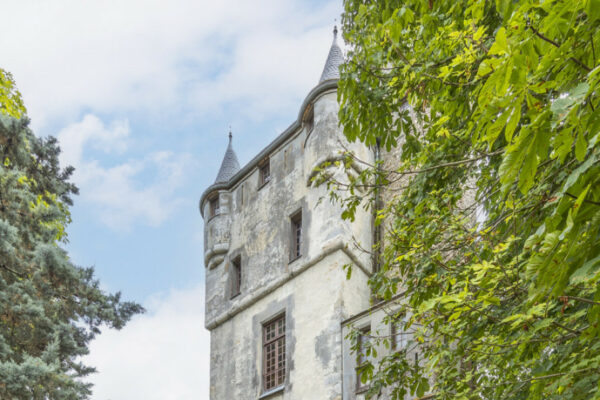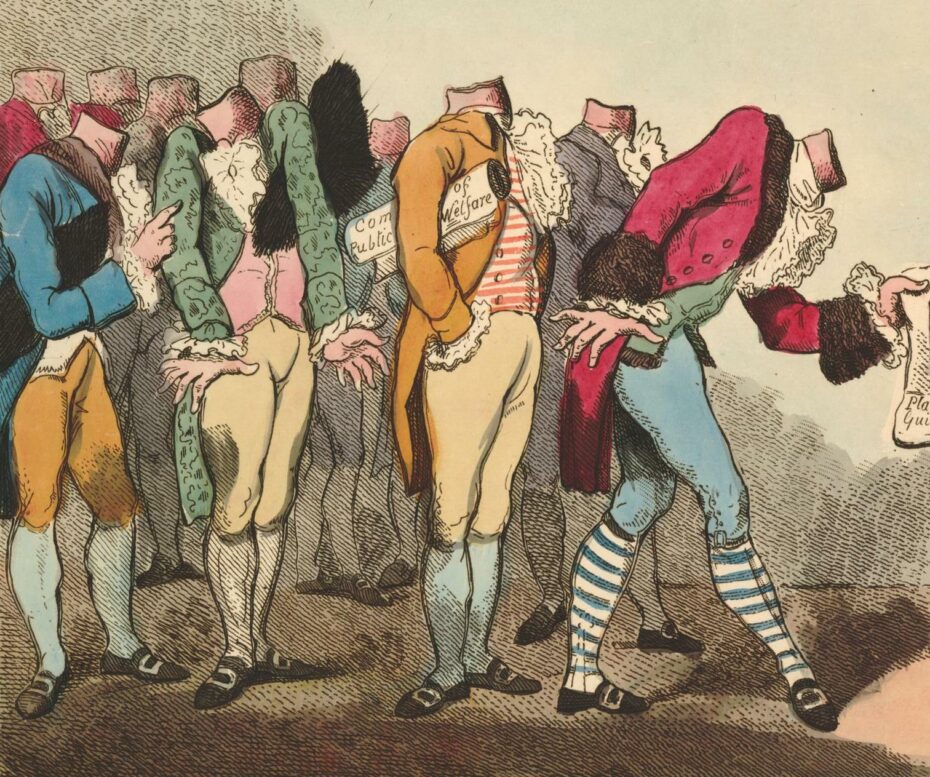
As the story goes, in 1932, a family of wealthy French aristocrats were waiting to board a train in Paris when they realised that the porter carrying their luggage was one of their own – a fellow aristocrat, that is – who had fallen on hard times. Faced with the reality that such an unthinkable fate could very well befall them too, naturally, this shocked the travelling noblesse to their core. It sounds like just the right amount of suffusive irony that would make the perfect opening scene to a Wes Anderson film, but it was this alleged chance encounter at a Parisian train station nearly a century ago, which led to the founding of a very real but little-known association designed to help France’s “distressed” nobility; a mission the ANF (the Association for the Mutual Assistance of the French Nobility) carries on to this day.
Unpopular opinion: it’s not easy being an aristocrat in today’s French Republic. Or more specifically, it’s not easy inheriting the financial burden of looking after an old castle. If one’s family has been lucky enough to survive various revolutions with a chateau intact – the reality of maintaining such a pile has been known in many cases, to lead to financial ruin.
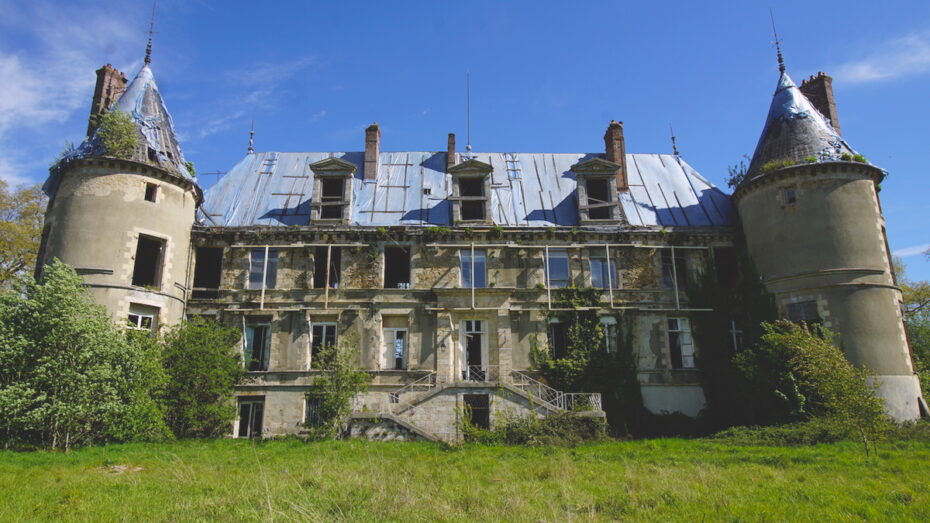
France has over 30,000 castles, and sadly a large number of them are abandoned or at risk. There are a number of organisations that exist to rescue France’s declining historic estates of a bygone era, but the ANF (Association d’Entreaide de la noblesse française) is the only one dedicated to propping up the custodians themselves (or the former custodians); in essence, a society of aristocrats who have banded together to give their own kind a leg up.
Through membership fees and donations from more fortunate members of their circle, the ANF offers financial ‘scholarships’ to down-and-out nobles, a proof-of-lineage service, as well as a community in which they can be welcomed back into the aristocratic fold, through social mixers, black tie balls, cultural events and activities, clothing sales, and an all-important bridge club.
While the ANF does its bit to financially support aristocrats who have fallen on hard times, the body primarily focuses its efforts on trying to keep French nobility “alive”. For example, if you are a noble singleton in the ANF looking for love (and the continuation of a noble family tree), you can take advantage of the association’s informal dating service that can help you find a suitable match with an ANF-approved lineage.
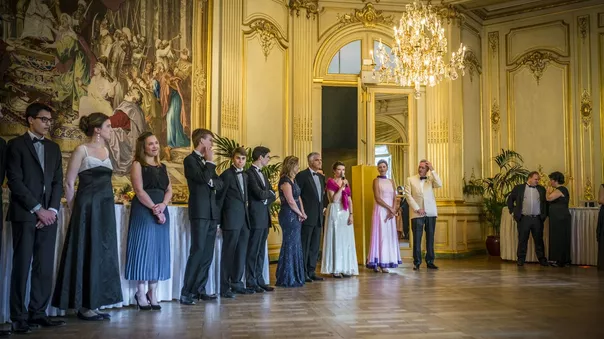
To achieve this approval, applications are submitted in their hundreds every year from those seeking a stamp of approval for their aristocratic heritage. If your family may have noble ties, but you’re struggling to prove it, the ANF might be able to help you out there – but only if you’re the real thing. With access to historical state archives in Paris and dedicated researchers, the ANF acts like a nobility validator, but at the same time, weeds out any bourgeois impostors. During the late 19th century, ‘faux-aristocrats’ who gave themselves noble-sounding surnames – adding a “de” before the family name – was apparently a bit of a problem. If the ANF cannot authenticate the lineage or researchers discover fraudulent intentions, the application will be rejected without mercy (some have even been taken to court for trying to falsely claim nobility). Applicants need to be able to offer historical proof that either a French king or emperor bestowed the family’s title, or provide proof of lineage along the patriarchal line – only legitimate children born to parents married in a Christian wedding qualify. Should you be descended from an aristocrat’s second marriage, are adopted, or only have nobility on your mother’s side of the family, you won’t count in the eyes of the ANF.
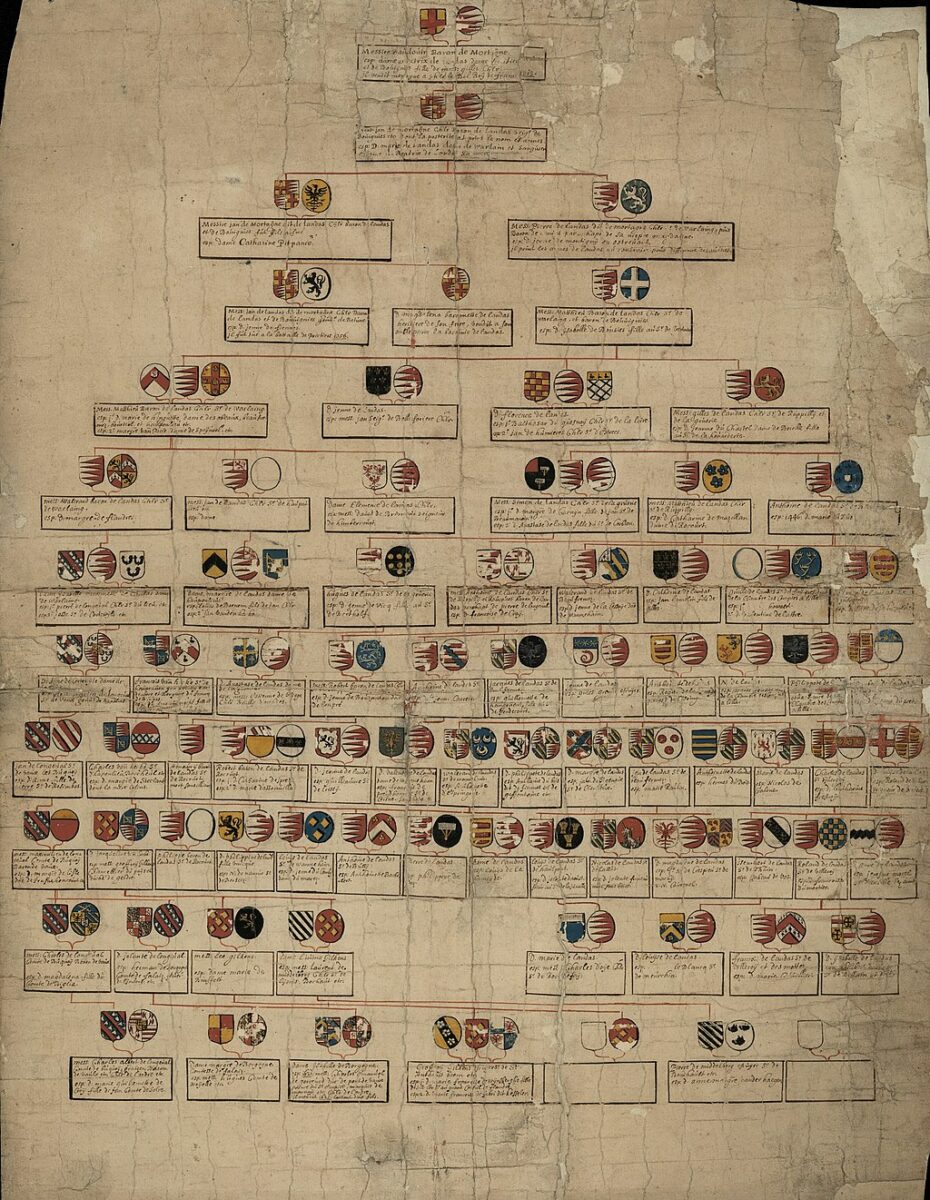
In France’s modern republic, having a noble lineage means nothing in the legal scheme of things. No official nobles have been created since 1870, and titles confer no formal power. For centuries, a noble’s purpose or profession was essentially to serve their king or emperor, and their own funds were frequently depleted by monetary contributions to the royal coffers and military campaigns. When the parachute of the French monarchy disappeared, the aristocracy were forced to fend for themselves in a capitalist job market. Inherited castles quickly became burdens rather than assets. Many became farmers on their own land to make ends meet while others were lucky enough to sell crumbling castles off to developers, but a significant number of French families lost track of their noble heritage (and fortunes) centuries ago. As the middle class rose across Europe, the income or lifestyle of someone with a noble lineage and someone from the middle class could be difficult to distinguish. With the dissolution between class lines, those with noble pedigrees married non-noble families, and according to the ANF, hundreds of French noble family names vanished from the census books. Some of the surviving French nobility of course retained their fortunes, discretely transferring their influence into the arenas of finance or industry where the top 1% continue to enjoy a certain level of power and wealth not entirely dissimilar to the ruling elite of pre-revolutionary France.
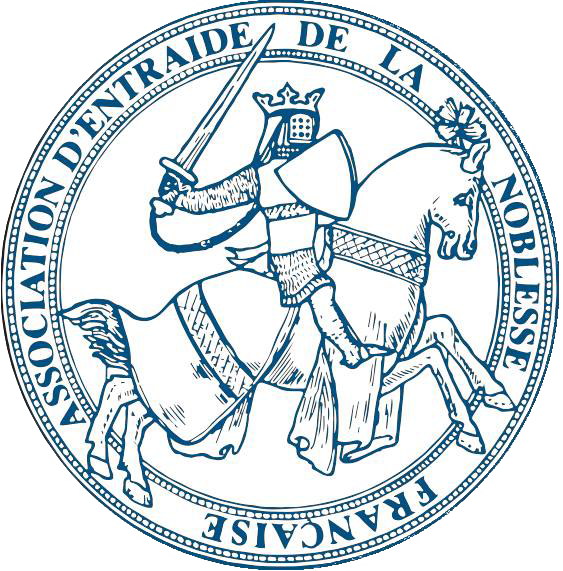
Of the members of ANF surveyed in 2020, 55% said they found it “hard to be noble in modern society”, but 87% said they still felt they served a purpose. In a country like France however, where the idea of nobility is something that goes against republican values, so many from old families prefer to lay low and remain discreet. The Count de Causans, one of the leading figures in the ANF, told the Wall Street Journal that he spotted some nobles selling their estate’s vegetables at a local market. When he asked them to seek help from the ANF, it took quite some convincing – aristocratic pride has been known to get in the way of asking for help.
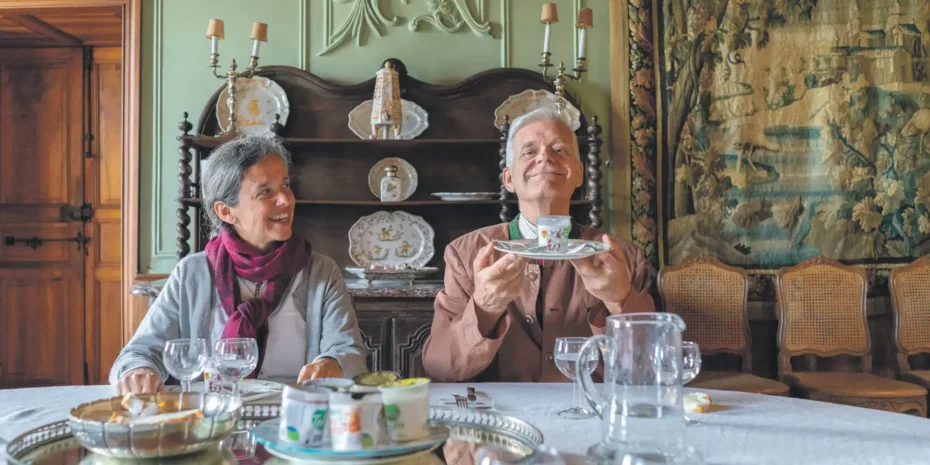
As of 2023, the ANF counts over than 5,300 members, and since the beginning, the society has received more than 14,000 members from almost 2,800 noble families. One might even credit the ANF alone for the continued presence of la noblesse in France, but the reality is, the French aristocracy didn’t exactly die out when Marie Antoinette & company lost their heads. According to one of their own, Jacques de Crussel, the 17th Duke of Uzès, when you run the numbers, there are even more nobles than before the French Revolution. A large part of that is to do with 19th-century history, which saw a series of five monarchs; kings and emperors; who each created their own new nobility. Aristocracy might have disappeared en masse during the revolution, but it more than made up for their losses in the century that followed. “We stocked up on numbers!” notes the Duke, who until recently, acted as President of the ANF.

With nobility gaining numbers, how about those of royal blood? Is there still anyone who could jump onto the French throne if France decides to become a monarchy again? Actually, there are four contenders to the non-existent throne, who also have support from French royalists. There are those who have claims from the House of Bourbon, the House of Orleans, and the House of Bonaparte – a real-life Game of Thrones scenario if you will. Louis Alphonse de Bourbon is the direct descendent of King Louis XIV, who makes his claim through the Spanish House of Bourbon, while Jean D’Orleans is a descendent of King Louis XV. Charles and Prince Napoleon is a distant relation of Napoleon (his brother’s great-great-grandson) with the weakest claim of the three to the throne. The ANF also makes efforts to boost its ties with other “thronless” European nobility. Every three years, members participate in a convention organised by the Commission of Information and Liaison of the Noble Associations of Europe, where aristocrats can get together and hobnob in regal locations like the Palace of Versailles.
If you aren’t a fallen member of the aristocracy seeking to claim to a noble French lineage, there are other ways in…
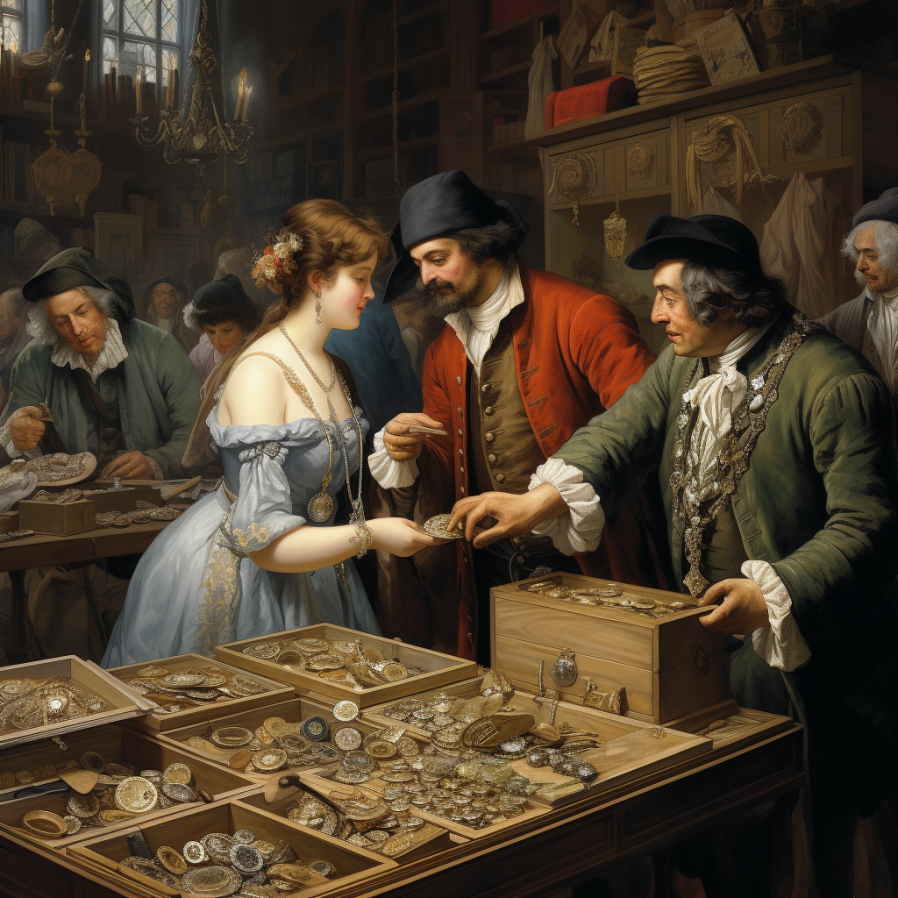
For a rare window into the little-known world of the nostalgic noblesse, get yourself to what might just be the most glamorous garage sale in Paris, hosted by the ANF at their headquarters, a discreet address in the 8th arrondissement. Throughout the year, the association collects second-hand designer clothes, jewellery, furniture and other aristocratic trinkets from its members to sell at their annual Christmas jumble sale (December 2nd – tea & cakes will be served). If thrifting the Ali Baba’s cave of French nobility doesn’t do it for you, there are also openings for an internship in the ANF’s library, should you harbour an interest in book keeping for the bereft bourgeois. Robin Hoods need not apply.









